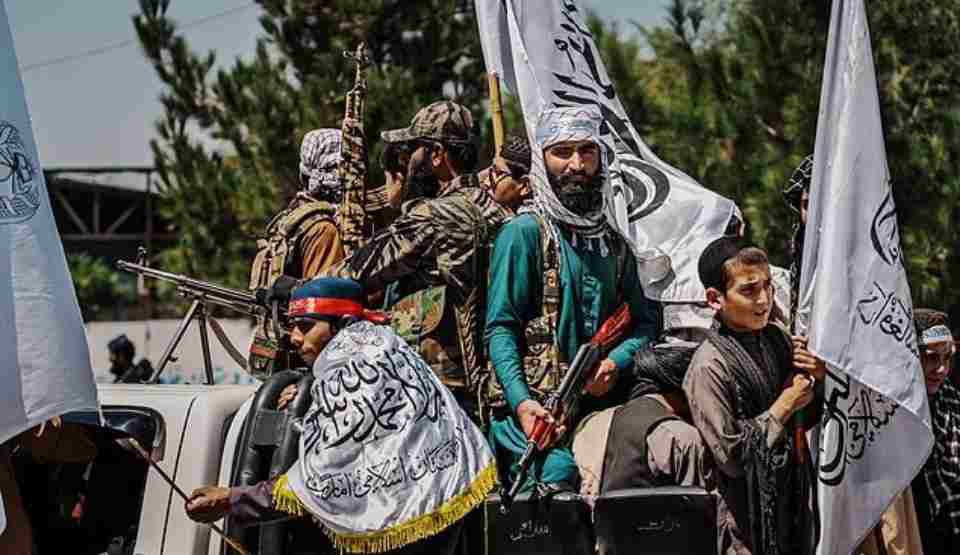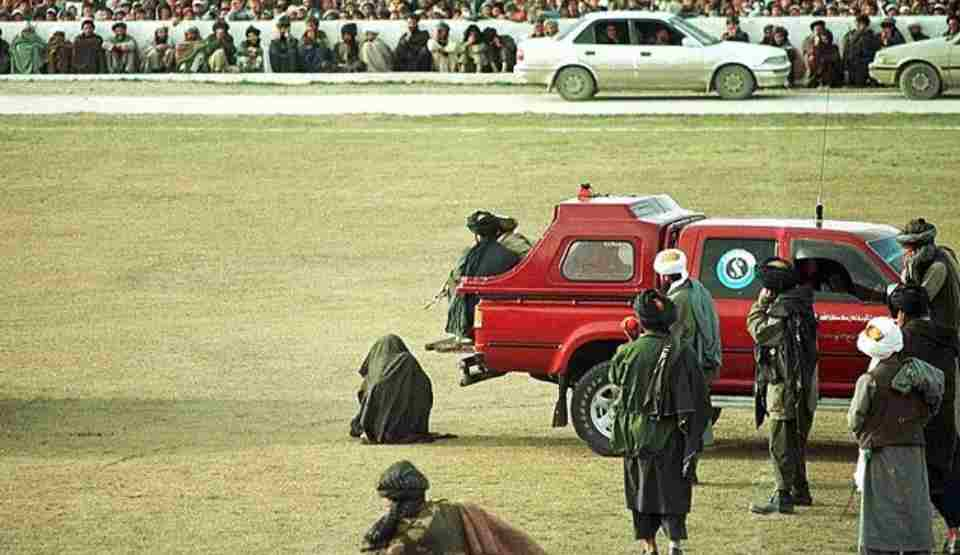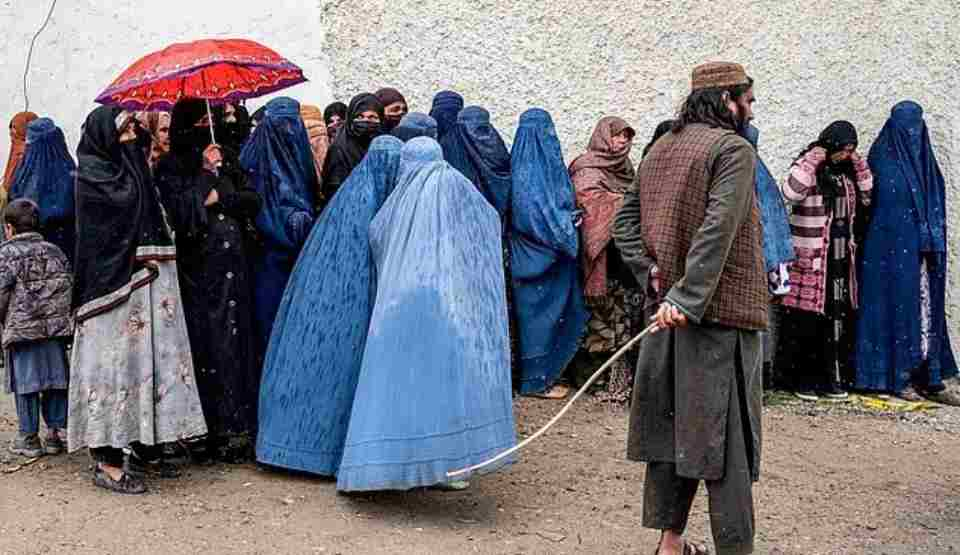An Afghan man convicted of murdering two people, including a heavily pregnant woman, was publicly executed in Badghis province, marking the Taliban’s continued use of capital punishment since regaining power.
The Execution
The condemned man was shot three times by a family member of the victims at a sports stadium in Qala-i-Naw, the provincial capital. Thousands of spectators attended the event, which was publicly advertised beforehand through official notices distributed on Wednesday.
According to Matiullah Muttaqi, Badghis province’s information chief, the man had killed a married couple. “The murderer killed two people, a man and his wife, who was around eight months pregnant,” he stated.

Legal Process
The Supreme Court confirmed that the execution followed review by three separate courts before receiving final authorization from Taliban supreme leader Hibatullah Akhundzada, who personally approves all execution orders from his base in Kandahar.
“The families of the victims were offered amnesty and peace but they refused,” the Supreme Court’s statement indicated. Under Islamic law provisions implemented by the Taliban, victims’ families have the right to carry out retaliatory punishment.
Juma Khan, 36, who witnessed the proceedings, noted: “Many people came to watch the execution, including the victims’ family, who exercised their right according to Islamic law.”
Pattern of Public Punishment
This marked the 11th public execution since the Taliban’s return to power in August 2021, according to AFP records. The previous executions occurred in April, when four men were simultaneously put to death across three provinces before thousands of witnesses, including Taliban officials.
Public executions were characteristic of the Taliban’s initial rule from 1996 to 2001, frequently conducted in sports stadiums. Beyond executions, Taliban authorities regularly employ corporal punishment—primarily flogging—for offenses including theft, adultery, and alcohol consumption.
International Response
The UN Human Rights office issued a strong condemnation: “We condemn the public execution of a man at Badghis Stadium after he was sentenced to death for murder. Public executions breach international law, and the death penalty more generally is incompatible with the fundamental right to life.”

UN High Commissioner for Human Rights Volker Türk called on the de facto authorities to “take concrete steps to promptly abolish capital punishment – starting by imposing an immediate moratorium on executions.”
Amnesty International, in its annual report published in April, identified Afghanistan among countries imposing death sentences following trials “that did not meet international fair trial standards.”
Taliban Ideology Law enforcement and social order form central pillars of Taliban ideology, which developed during Afghanistan’s civil war period following Soviet withdrawal in 1989. The movement’s hardline interpretation of Islamic law continues to shape governance in areas under its control.RetryClaude can make mistakes. Please double






